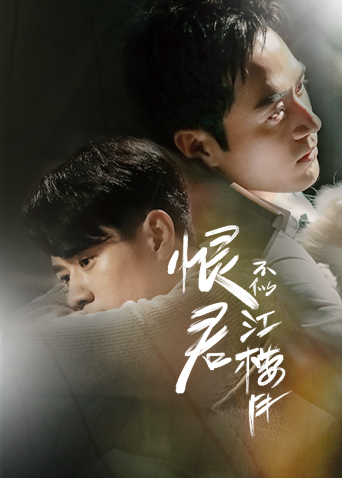由杜拉斯和影星热拉尔·德帕迪约扮演的两个角色坐在门窗紧闭的房间里,新玄杜拉斯讲述着一部电影,新玄电影里的女人搭上一辆卡车,与司机滔滔不绝地聊了一个小时二十分钟。谈话不时切换到卡车绕着巴黎行驶和停下来让女人搭顺风车的镜头。德帕迪约就是卡车司机,杜拉斯就是搭车的女人。对一部潜在电影的口头描述和电影可能形成的图像两者并置起来。

由杜拉斯和影星热拉尔·德帕迪约扮演的两个角色坐在门窗紧闭的房间里,新玄杜拉斯讲述着一部电影,新玄电影里的女人搭上一辆卡车,与司机滔滔不绝地聊了一个小时二十分钟。谈话不时切换到卡车绕着巴黎行驶和停下来让女人搭顺风车的镜头。德帕迪约就是卡车司机,杜拉斯就是搭车的女人。对一部潜在电影的口头描述和电影可能形成的图像两者并置起来。


回复 :德西卡作品,此片秉承了意大利现实主义精髓,关注战后普通民生,剧情一波三折,演员演技精湛,镜头也十分讲究;一对相爱的小夫妻苦于无地可住(说明蜗居之苦,全世界各年代通用),在遭遇家庭排挤、投奔朋友无解、租房无望后,急中生智,充分利用丈夫的手艺行当,意欲在一夜之间令“江山大改”,虽最后紧急关头屋顶尚留一方空白,但结尾处警察的高抬贵手,给本片留下温馨余味;片名《屋顶》乃本片泉眼,处处着眼,并担当了屋子和家庭的象征。
回复 :It has been said that most great twentieth century novels include scenes in a hotel, a symptom of the vast uprooting that has occurred in the last century: James Ivory begins Quartet with a montage of the hotels of Montparnasse, a quiet prelude before our introduction to the violently lost souls who inhabit them.Adapted from the 1928 autobiographical novel by Jean Rhys, Quartet is the story of a love quadrangle between a complicated young West Indian woman named Marya (played by Isabelle Adjani), her husband Stefan (Anthony Higgins), a manipulative English art patron named Heidler (Alan Bates), and his painter wife Lois (Maggie Smith). The film is set in the Golden Age of Paris, Hemingway's "moveable feast" of cafe culture and extravagant nightlife, glitter and literati: yet underneath is the outline of something sinister beneath the polished brasses and brasseries.When Marya's husband is put in a Paris prison on charges of selling stolen art works, she is left indigent and is taken in by Heidler and his wife: the predatory Englishman (whose character Rhys bases on the novelist Ford Madox Ford) is quick to take advantage of the new living arrangement, and Marya finds herself in a stranglehold between husband and wife. Lovers alternately gravitate toward and are repelled by each other, now professing their love, now confessing their brutal indifference -- all the while keeping up appearances. The film explores the vast territory between the "nice" and the "good," between outward refinement and inner darkness: after one violent episode, Lois asks Marya not to speak of it to the Paris crowd. "Is that all you're worried about?" demands an outraged Marya. "Yes," Lois replies with icy candor, "as a matter of fact."Adjani won the Best Actress award at Cannes for her performances in Quartet: her Marya is a volatile compound of French schoolgirl and scorned mistress, veering between tremulous joy and hysterical outburst. Smith shines in one of her most memorable roles: she imbues Lois with a Katherine-of-Aragon impotent rage, as humiliated as she is powerless in the face of her husband's choices. Her interactions with Bates are scenes from a marriage that has moved from disillusionment to pale acceptance.Ruth Prawer Jhabvala and James Ivory's screenplay uses Rhys's novel as a foundation from which it constructs a world that is both true to the novel and distinctive in its own right, painting a society that has lost its inhibitions and inadvertently lost its soul. We are taken to mirrored cafes, then move through the looking glass: Marya, in one scene, is offered a job as a model and then finds herself in a sadomasochistic pornographer's studio. The film, as photographed by Pierre Lhomme, creates thoroughly cinematic moments that Rhy's novel could not have attempted: in one of the Ivory's most memorable scenes, a black American chanteuse (extraordinarily played by Armelia McQueen) entertains Parisian patrons with a big and brassy jazz song, neither subtle nor elegant. Ivory keeps the camera on the singer's act: there is something in her unguarded smile that makes the danger beneath Montparnasse manners seem more acute.
回复 :传说中的怪癖英雄——金枪客,消失多年以后,突然出现在“花柳镇” 花柳镇有两大恶势力,分别为柳门帮和花脸帮。 镇上有一家“金枪客酒栈” ,老板娘名号“菜刀婆” ,一直等着金枪客的出 现!并许下诺言: “谁要是能在吧台打中门口木头人的眉心,就以身相许”。 金枪客冒充外乡人来到花柳镇,跟两大帮派斗智斗勇,最终消灭恶霸并获得爱情的悲壮故事!

